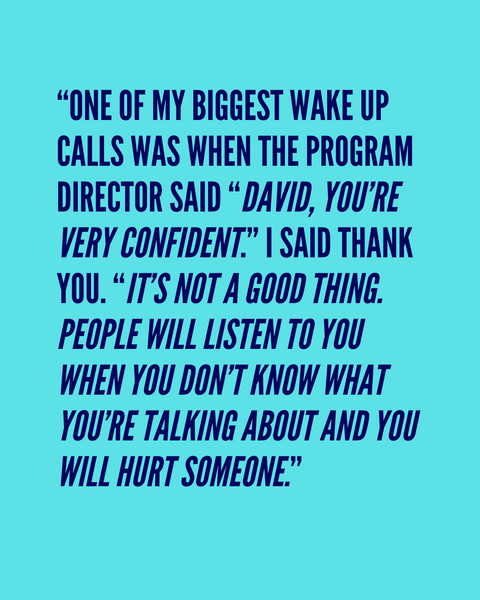David Convissar, MD

What purchase of $100 or less has most positively impacted in your life? (Feel free to give specific brands/models).
Believe it or not, I am pretty old fashioned when it comes to my medical learning. In a world dominated by iPhones, iPads, computers and the internet (which are all obviously incredibly powerful resources), I still remain partial to a good ol’ pen and paper. I think a good notebook either the moleskines that I use for personal journaling about clinical and life experiences, my larger moleskine for procedure logging and notes, or my handmade A6 pocket binder that I keep my bedside clinical notes in, alongside a good pen (I am partial to Pilot Juice .38) are critical to my career. More importantly, journaling allows me the opportunity to decompress and reflect, while more clinical notes allow me to continuously learn and improve my art. I would say a pen and notebook (I know it’s two items, but I’m treating it as one) are the most important purchases for less than $100.00 I’ve made in my life.What is the funniest thing that has happened (to you or witnessed) in your job?
I got straight up punched in the face by a patient waking up from anesthesia. A young, otherwise healthy and intoxicated gentleman had come in after a trauma. He underwent surgery, did well and upon waking up, well some may know that young patients tend to be a bit on the more rambunctious side. In attempting to pull his endotracheal tube out himself, one of his arm ties came loose and he clocked me in the side of the head. Can’t say that was the most pleasant feeling, but my colleagues got a good laugh before we settled him down and got him safely extubated and to PACU.
Favourite guilty pleasure after a stressful day at work?
Reese's Peanut Butter Cups… I think I can eat a dozen before getting sick (and regularly do on Halloween). I leave them in the freezer, come back from a bad day, I can down 2 or 3 packs without blinking an eye.
How has a failure (or apparent failure) set you up for later success? Do you have a "favourite failure" of yours?
My greatest apparent failure, actual failure, whatever you want to call it, was my first rotation in the ICU as an intern. I did not know a thing, and it showed. I was embarrassed on rounds constantly because not only did I not know what to prioritize on presentations, but didn’t know management. I was like a headless chicken running around being largely just in the way. But despite this, I really, really enjoyed my time in the unit and realized that it was going to be something I wanted to pursue when I was done my anesthesia training.

That really got me. And while I don’t know if that was the defining moment that turned things around, I knew I wanted to be one hell of an ICU doctor and things had to change. And since then I have aggressively pursued becoming the best possible intensivist I can be.
If you have a billboard for all other healthcare professionals out there with any message, what would it say? (It can be someone else’s quote: Are there any quotes you think of often or live your life by?)

So much so do I love this quote that I have it tattooed on the inside of my right bicep. I think the idea that the art of medicine, or the art of anything really, takes a long time to master. But our lives are short. I won’t even be done with my training before working as a fully independent physician until I am 32 years old. This means that possibly a third or more of my life may be over before I’ve even truly just begun to practice. And so while the training is long, we only have so much time in which to learn and perform it.
That said, the second, deeper meaning is even more profound, and that’s the idea that

And that all we do now in our short lives to contribute to the field will live on as part of it well beyond the length of our lives.
What is an unusual habit or (conventionally considered to be) absurd thing that you do/love (may or may not be related to your discipline/practice)?
I am pretty neurotic about things in my life all being consistent and the same. So for example, all of my socks have to be from the same place. Same thing with my shirts, and pants. Not in that they all have to be from the same place, but rather, all my socks have to be from one place, all of my shirts from one place etc. All of my pens are the same. All of my hats are from the same company etc. I do not know why.
In the last 5 years, what new belief, behaviour or habit that has most improved your life (may or may not be related to your discipline/practice)?
Believe it or not, turns out showering everyday seems to have really improved things. I of course am only kidding. I don’t shower everyday haha!
I would have to say that the habit that has most improved my life has been keeping a planner. I have always been one to kind of skate through on remembering what I can, having friends and others around me to make sure I did what I had to and was where I had to be. But as life has become more complicated, more players involved, more responsibilities, more research and papers and projects, and things to do and keep track of, honestly just writing everything down in a pocket notebook has been instrumental in keeping my very busy life organized. I cannot tell you how many meetings and shifts I may have missed just this year had I not written them down in a planner.
What advice would you give to a smart, driven student? What advice should they ignore?
Being smart is great, and being driven is great. But don’t let those things give you a false sense of safety in your academic pursuits. The reality is, there are a lot of smart and driven people out there. The world wouldn’t be what it was if there were only a handful of smart, driven people. If you apply to graduate school, to medical school to veterinary school, nursing school, PA school, trade school, PhD programs whatever continuing education you choose, everyone applying is going to be smart and driven. That’s probably part of the reason they’re doing it too.

This will not only make you stand out, but can prevent you from burning out.
What bad recommendations you hear in your area of expertise that you would want to correct the most?
This is a tough one because in the field of anesthesia there are so many different ways to do the same thing. Want to put someone to sleep? Use any concoction of sedatives and hypnotics. Want to reverse someone’s paralysis? Here, try any number of these medication combinations! I think because of that, it’s hard to say if I have really heard “bad recommendations” per say. While there are obviously clinical disagreements on a case to case basis, one of the beauties of the practice of anesthesia is that you can do things in so many different ways and they can all be correct. So with that, I don’t know that I have had any egregiously bad recommendations. I’m sorry!
In the last 5 years, what have you become better at saying "no" to? What new realizations helped?
Work. Absolutely. I work a lot. I work at the hospital, I work on papers at home, I work doing talks at medical schools and residencies, I work doing lectures and building my medical education platform. I work a lot and it is extraordinarily taxing. I always used to say yes when someone asked me to work on something else. Hey, do you want to work on this paper, or do you want to write this textbook chapter? Do you want to come in for overtime? There is so much pressure to be the best clinicians we can possibly be because we are responsible for people’s lives. But if I can’t step back from work from time to time, or not take extra hours, or not work on another project or paper or book chapter, to take care of myself, I would certainly burn out and not practice to the best of my ability.

When you feel overwhelmed or lost focus temporarily, what do you do? (What questions do you ask yourself to get back on track?)
The gym. I workout everyday, almost religiously, and I find that it is my way of resetting. And the nice part is I can do it everyday so I don’t feel like things are piling up on me emotionally. It’s my opportunity to not only not think about all the things that may have gotten to me that day or recently, but to vent any frustrations and channel it into something productive. If I need to stay longer, I stay longer. And then cap it off with an excessively long hot shower. I am also a big supporter of journaling, both for an educational and an emotional standpoint.

What is your best or your favourite achievement in your career so far?
At this point my greatest achievement in my academic career has been receiving a position in a dual critical care and cardiothoracic anesthesia fellowship at a top program. The specialty of cardiothoracic anesthesia is extremely competitive just for match standards, but to be extended an offer for both positions in sequential years was an absolute blessing. Luckily, this is only the beginning of my career and I hope in the years to come I only continue to achieve higher and higher peaks and grow along the way.
_____
David is a Rutgers-trained anesthesiologist currently in his Critical Care and Cardiothoracic Anesthesia fellowships at the Massachusetts General Hospital in Boston, Massachusetts. His clinical interests lie in mechanical circulatory support (MCS), transesophageal and transthoracic echocardiography. He is extraordinarily passionate about the fields of anesthesia and critical care and look to improve the way by which he teach and learn it.
University of Pittsburgh
Bachelors of Science- Microbiology
Rutgers, New Jersey Medical School
Doctor of Medicine- M.D.
Massachusetts General Hospital
Fellowship in Critical Care Medicine
Massachusetts General Hospital
Fellowship in Cardiothoracic Anesthesiology






Leave a comment